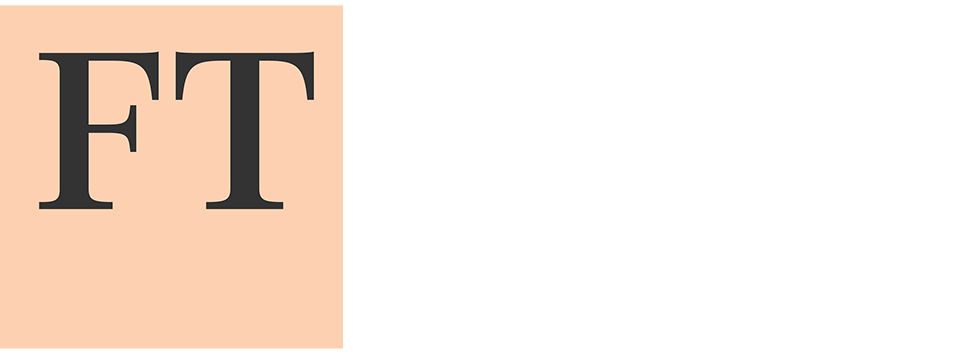Premium Members
The FT Tech for Growth Forum is supported by HCLTech and Lenovo, its premium members. They help to fund the reports.
Our members share their business perspective on the forum advisory board. They discuss topics that the forum should cover but the final decision rests with the editorial director. The reports are written by a Financial Times journalist and are editorially independent.
Our members feature with their views on the platform economy. Members’ views stand alone. They are separate from each other, the FT and the FT Tech for Growth Forum.
Embracing the platform economy to accelerate innovation
Ashish Kumar Gupta, head of Europe, the Middle East and Africa and senior corporate vice-president
The world is in a post-Covid tech winter. Market capitalisations of technology companies fell by $4.6tn in 2022, with each week bringing news of Big Tech groups shedding staff. The hype around crypto and web 3.0 also appears to have faded away.
In such an environment some organisations might wonder why the discussion about platforms still matters.
Despite the tough trends, almost every stakeholder believes that tech has the power to transform businesses. Companies that use platforms can still come to dominate complete value chains.
The digital revolution is disrupting businesses, economics, labour markets and society. Driven by innovation, platforms have become a part of our daily lives in ecommerce, fintech, social media and more.
The integration of platforms is poised to become even more widespread.
How digital platforms work
At its simplest, a platform is a marketplace on a common technical stage. Over time it will ease interaction and increase transactions for all players.
Platforms provide a different way to build a business. Traditionally, companies were product-driven, wanting to sell and focus on supply-side economics, scale and lower costs.
Platforms have flipped this equation. They focus on interactions between players and the network, not the product. Less friction in interactions has pulled in more participants and business has surged.
Many of the most valuable companies – Apple, Microsoft, Amazon, Google, Facebook, Spotify and Alibaba – are platform businesses. It is expected that 30 per cent of global economic activities will soon be carried out using platforms.
The platform winners have gained ground in all categories. The underlying economics of these companies is far better than those of traditional businesses. According to an MIT Sloan report, the top 43 publicly listed platform companies had nearly twice the operating profits, growth rates and market capitalisations of the 100 largest firms in the same industries over the past 20 years — with half the employees.
The digital platform strategy
HCLTech works with many customers in a range of sectors and has created successful platforms across a variety of industries.
Organisations should follow this blueprint to create a successful digital platform strategy:
Define a leader who understands the business, understands technology and can create an incubator within or at arm’s length from the main organisation
Company culture has to evolve. Teams need to understand enough about the business but must not hold on to assumptions that can hold back progress.
Clearly define the platform and what it wants to achieve
This is HCLTech’s first step when it works with new clients.A football club with 1bn fans wanted to directly engage with its supporters via an official app. The platform built by HCLTech has put all aspects of the business in one place, including news, ticketing, partner rights, commerce, and live events.
Another large customer launched multiple platforms. The intention was to take each large item within its cost base and use a platform to increase activity in that market.
Focus on the value exchange and how the platform can lessen friction.
Companies such as Uber – “I need a cab now” – have made it far easier for people who want to travel easily and flexibly. Its platform lets riders get a car within minutes.
Focus on architecture, culture and governance
Platforms have proliferated but bad intent and poor culture will amplify the negative as well as the positive. Today regulators understand the harm that platforms can cause. Designing a “platform for good” is key to success and growth - good architecture, culture and governance lies at the core of such a design.
HCLTech believes any company that ignores the potential of platforms risks losing out on business and market share.
* HCLTech’s views are separate from other premium members, the FT and the FT Tech for Growth Forum
Why scalability is the key to platform success
By Ken Wong, president, Lenovo Solutions and Services Group
If the lesson from this report is clear – that a digital strategy must be a priority in any company’s approach to the modern economy – the means of delivery are still up for debate.
A compelling case has been made for businesses to shift perspective so that customer needs are at the heart of problem-solving. Yet for all but the biggest organisations, the “go large or go it alone” question is not up for debate. Size dictates that most will have no option but to go with an incumbent platform.
This dilemma is a key driver of Lenovo’s vision of intelligent transformation. Our reputation as the world’s largest PC company provides the solid foundations for growth into the areas of server, storage, mobile, solutions and services.
It is our Solutions and Services Group that could be a game-changer for companies that want to extend their online reach by leveraging the platform economy.
This report notes that companies “must also be prepared to beef up their technology capabilities in order to ensure that management of an increasingly important asset, data, can eventually be brought in house”.
Lenovo TruScale, our infrastructure as a service (IaaS) platform, allows companies to use the latest data centre hardware via a subscription. There is no need to buy the equipment itself and customers pay only for the infrastructure resources they use.
Blue Ocean Technologies, an IT services provider in Peru and Ecuador, uses TruScale to offer its clients the best of both worlds: on-premises security and control together with cloud-like agility and scalability.
Huzhou Central Hospital in China partnered with TruScale to create the secure and scalable IT platform it needs to bring next-generation digital healthcare to people across Zhejiang province.
They built a digital solution to help physicians monitor and manage people with chronic medical conditions. This raises a wider issue relating to the rise of the platform economy: we are talking about something much larger than a crude commercial concern focused solely on building the bottom line.
What guides Lenovo’s innovation and creativity is “smarter technology for all”. We believe intelligent transformation has the interests of humankind at heart, that it is capable of building a more inclusive, trustworthy and sustainable future.
Last month we launched our first global intelligent transformation index. This will benchmark the adoption rates of digital technologies across markets and industries. It ranks market adoption of big data, AI and the internet of things.
The index has already shown that markets in northern and western Europe achieved the highest rates of adoption, primarily due to advanced infrastructure, skilled labour forces and forward-looking government policies that promote trust and transparency in data usage.
But being a market with high gross domestic product per head is no guarantee of thriving intelligent transformation: Australia and Canada lag behind.
As stated in the conclusion of this report, it is the forward-looking and technologically-enabled companies that will win the race to attract the new generation of talent. By leveraging the platform economy, they will set themselves up for future success.
* Lenovo’s views are separate from other premium members, the FT and the FT Tech for Growth Forum



